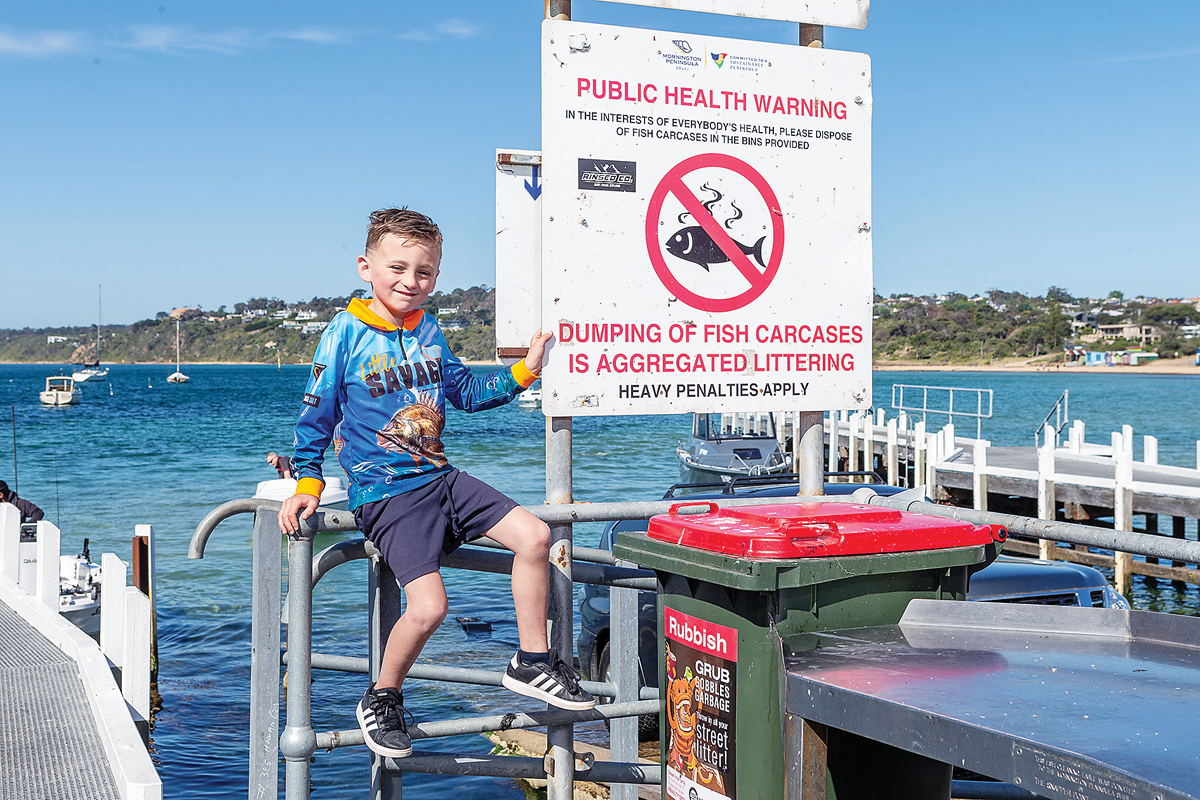HE may only be seven, but Taj McCallum has a wise outlook when it comes to his number one passion – fishing.
The primary school fishing fanatic has been taking to the rod for as long as he could walk, and dad Michael couldn’t be prouder.
Not only is the youngster dedicated to being the best, but he is also passionate about sustainability of the sport he loves and making sure people understand responsible fishing.
Michael McCallum says his son’s enthusiasm for fishing is matched by his love and health of the water.
“His passion is fishing, being with his Labrador brown bear Marlo, and camping, as long as we are fishing,” he said.
Recently Taj caught his personal best in Port Phillip – a five kilogram schnapper 200 metres off Mornington pier.
“We are so proud and passionate about his love for the sport as well as his ability to actually land this size fish,” he said.
McCallum said Taj was saddened by the amount of fishing waste discarded by some fishers, and wanted to send a reminder to everyone who uses the bay to look after it.
“If you don’t want it, take it home and bin it,” he said.
Ocean-based charity Sea Shepherd says the single biggest source of plastic choking out the life in oceans is made up of purposefully or accidentally lost, discarded, or abandoned fishing nets, ropes, fish aggregating devices, long lines, and plastic fishing crates and baskets.
About 46 per cent of the 79,000 tonnes of ocean plastic in an area known as the Great Pacific Garbage Patch was made up of fishing nets, some as large as football fields.




